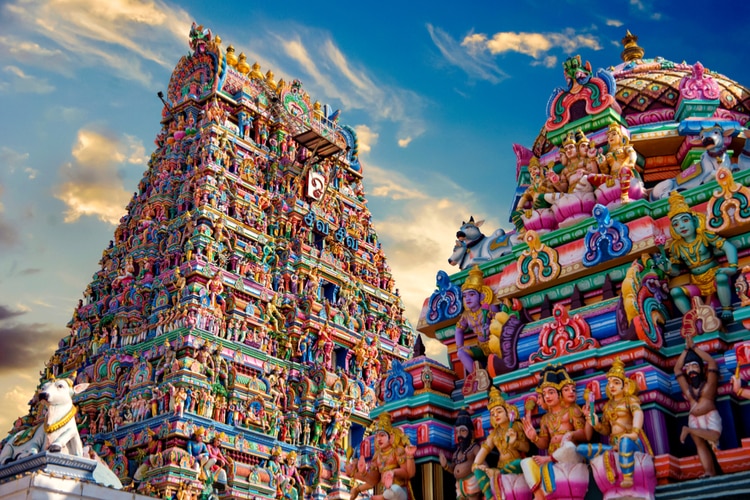
Courtesy https://www.swedishnomad.com/
Want to know more about Hinduism? Here are 25 Interesting Facts about Hinduism that you probably didn’t know before reading this!
To make this even more fun, I want to challenge you as well. How many of these Hinduism facts did you know before reading this? Share your result in the comment section!
1. The Rig Veda is the oldest known book in the world
The Rig Veda is an ancient text written in Sanskrit. The date is uncertain, but most experts date it back to 1500 years B.C. It’s the oldest book known in the world, and therefore, Hinduism is also sometimes referred to as the oldest religion.
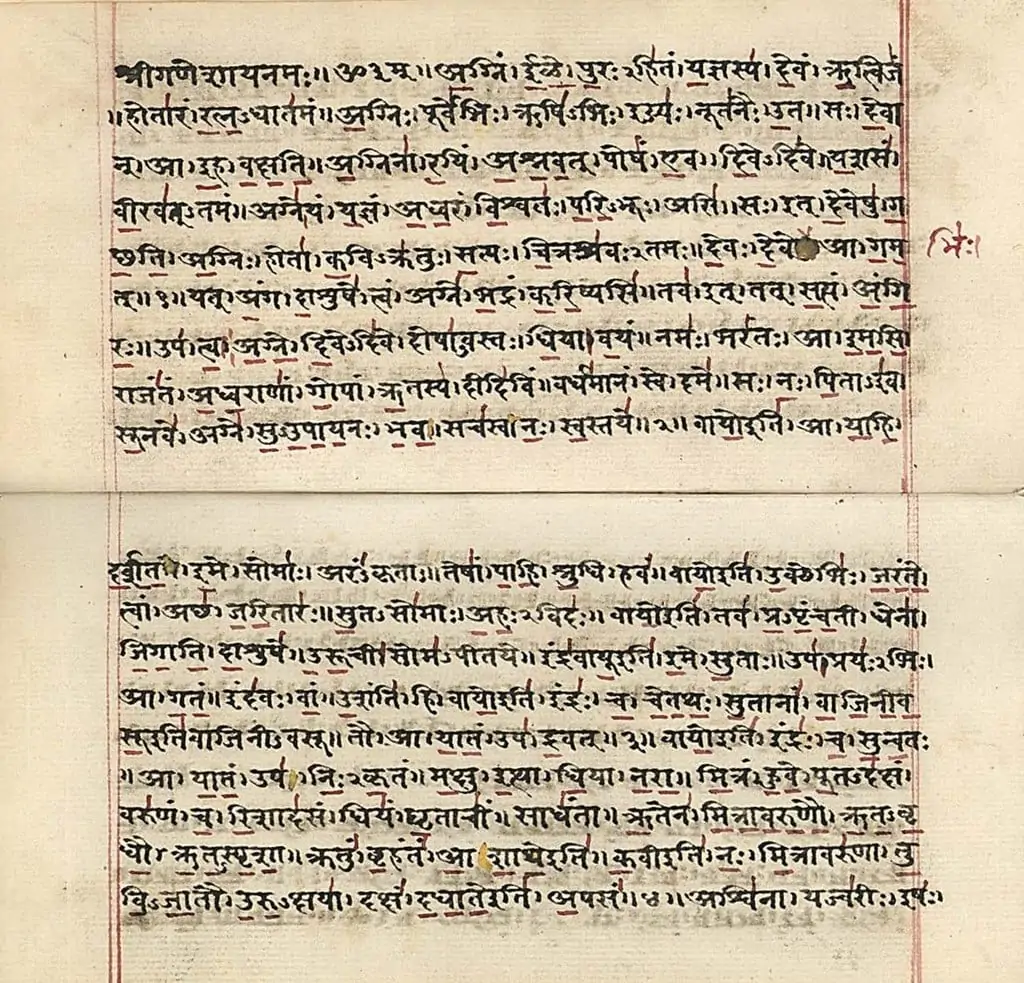
2. 108 is considered a sacred number
So-called Malas or Garlands of prayer beads come as a string of 108 beads. Mathematicians of Vedic culture saw this number as a wholeness of existence, and that it connects the Sun, Moon, and Earth.
108 has long been a sacred number for Hindus.

3. It’s the third largest religion in the world
Only Christianity and Islam have more followers than Hinduism, which makes it the third largest religion in the world!

4. Hindu belief says that gods can take many forms
There is only one eternal energy, but it can take form as many gods and goddesses. It is also believed that a part of the Brahman lives in every single being in the Universe.
One of the many interesting facts about Hinduism since the other major religions are monotheistic.
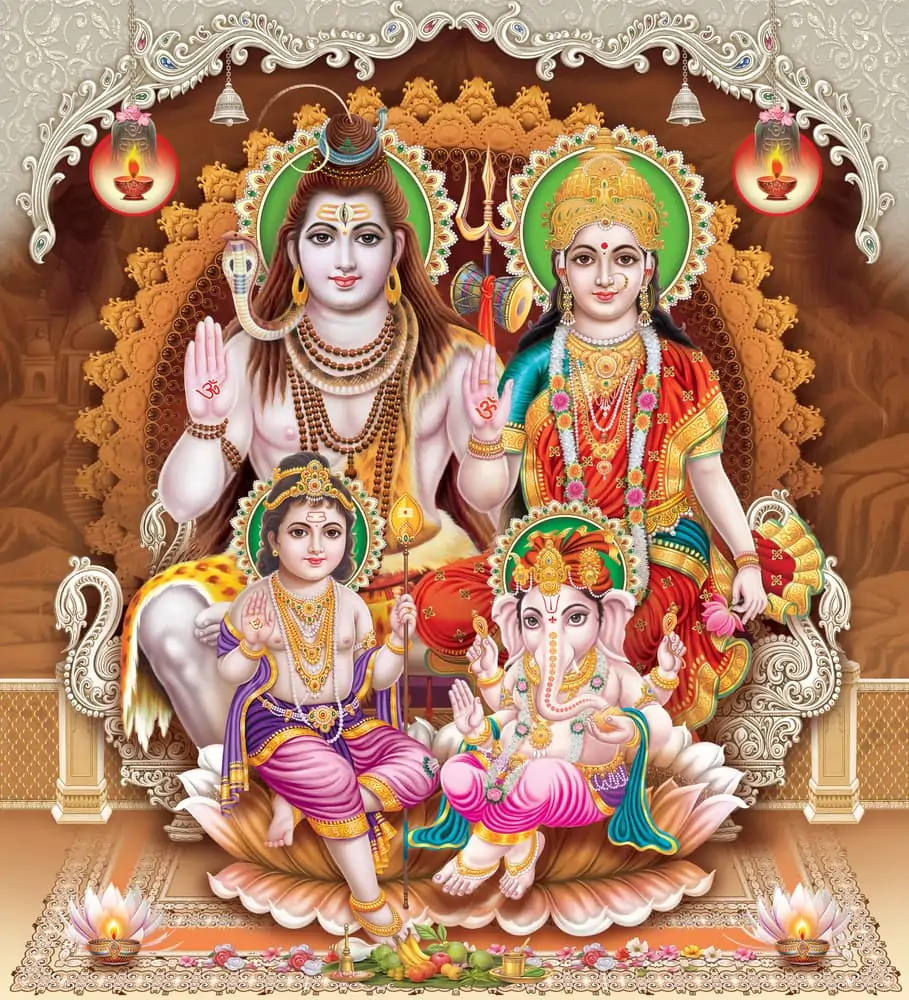
5. Sanskrit is the most commonly used language in Hindu texts
Sanskrit is the ancient language of which most of the sacred text is written in and the language’s history goes back to at least 3500 years in time.
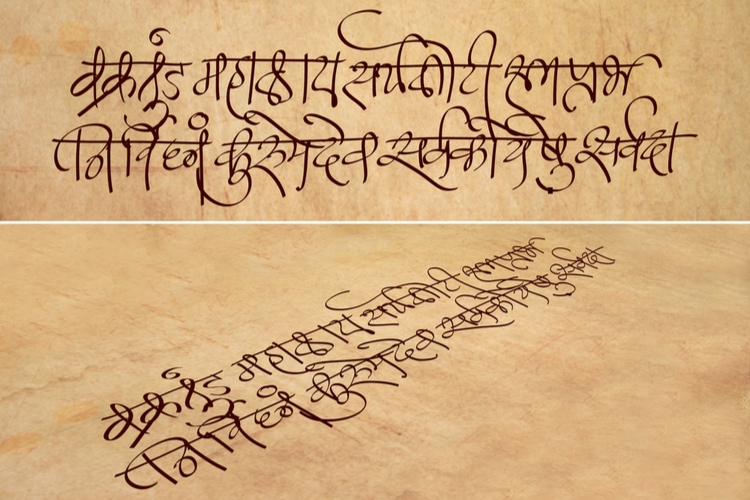
6. Hinduism believes in a circular concept of time
The Western world follows a linear concept of time, but Hindus rather believe that time is a manifestation of God, and that it is never-ending.
They see life in cycles that begin to end and ends to begin. God is timeless and the past, the present and the future coexist simultaneously.
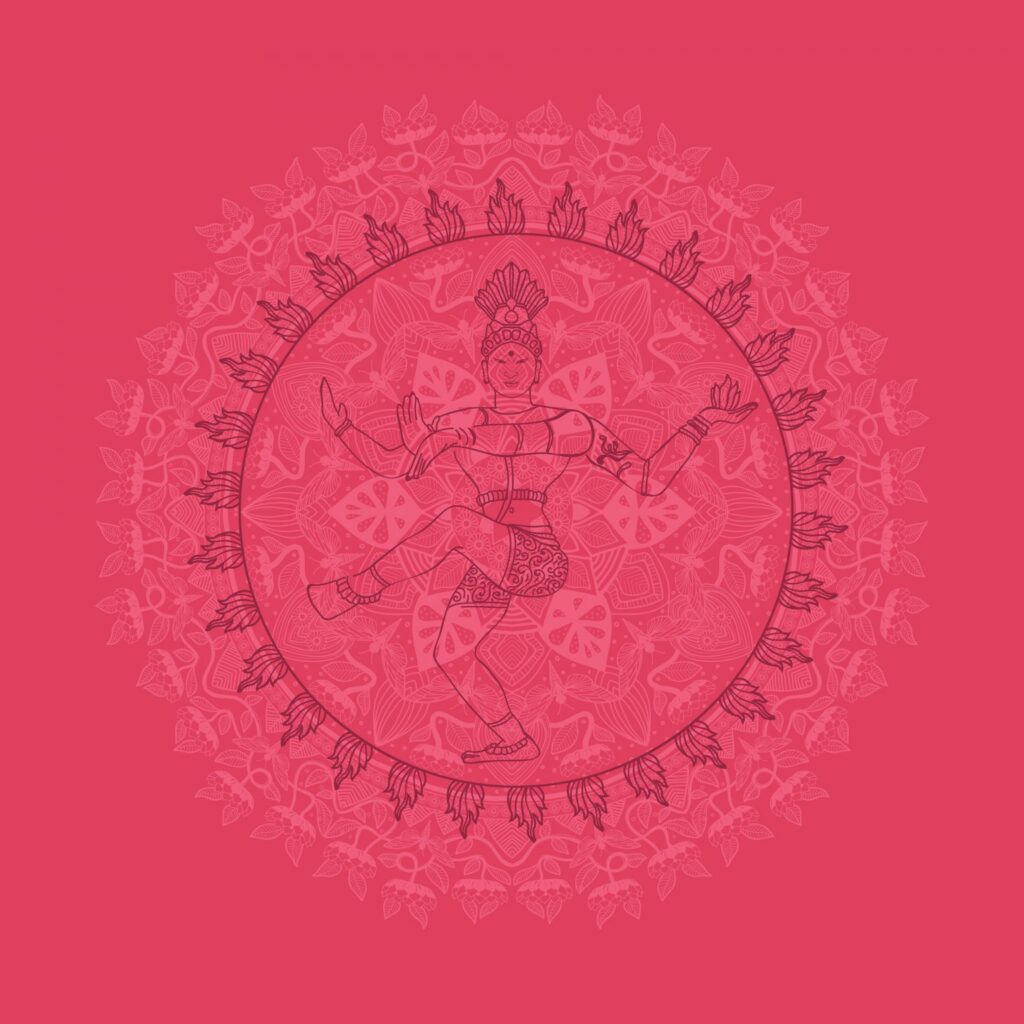
7. There is no single founder of Hinduism
Most religions and belief systems in the world have a founder, such as Jesus for Christianity, Muhammad for Islam, or Buddha for Buddhism and so on.
Hinduism, however, has no such founder and there is no exact date when it originated. This is because it grew out of cultural and religious changes in India.
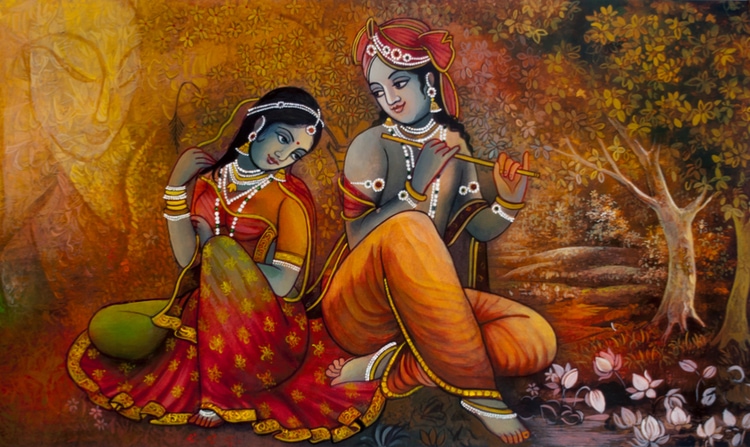
8. The real name is Sanātana Dharma
The original name in Sanskrit for Hinduism is Sanātana Dharma. The word Hindu or Indu was used by Greeks to describe the people living around the Indus River.
By the 13th century, Hindustan became a popular alternative name for India. And in the 19th century, it is believed that English writers added ism to Hindu and that it was later adopted by the Hindus themselves.

9. Hinduism encourages a vegetarian diet
Ahimsa is a moral principle which can be found in the Hindu faith as well as Buddhism and Jainism. It is a Sanskrit word which means “not to injure” and compassion.
That is why many Hindus eat a vegetarian diet because if you eat meat on purpose it is believed that you cause harm to the animals. However, some Hindus just refrain from eating pork and beef.
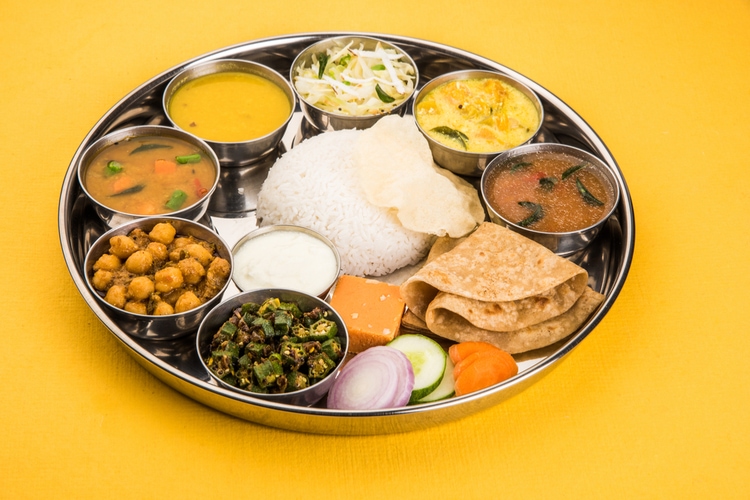
10. Hindus believe in Karma
A person who does good in life is believed to receive good karma. For every good or bad action in life, the karma will be affected, and if you have good karma at the end of this life, Hindus believe that your next life will be better.
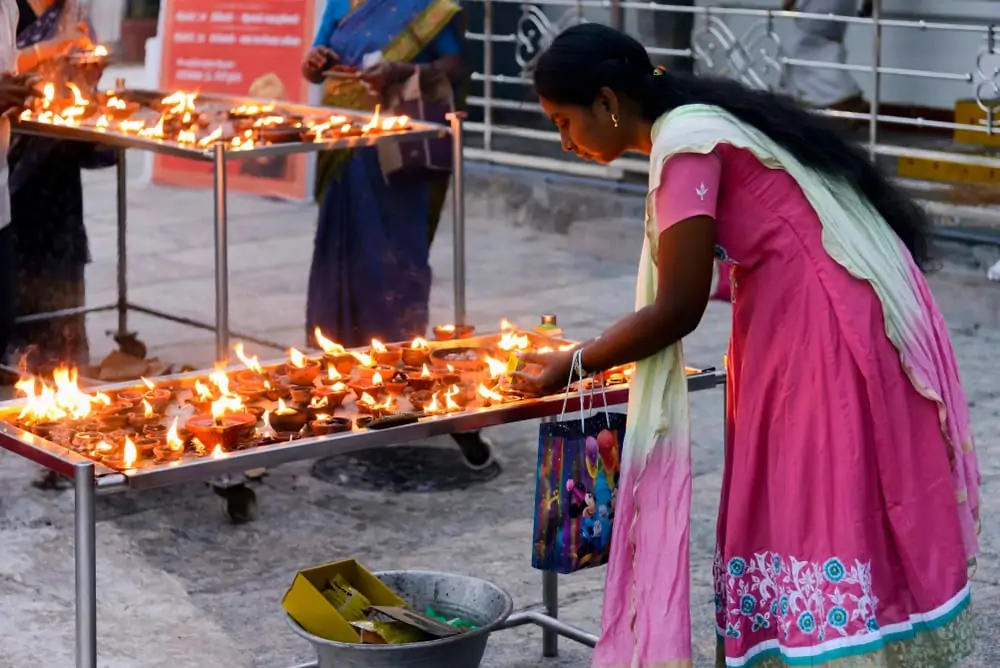
11. There are 4 life goals for Hindus
These are Dharma (righteousness), Artha (means of money), Kama (right desire), and Moksha (salvation).
This is another one of the interesting Hinduism facts, and especially since the goal isn’t to please God in order to allowed into heaven or sent to hell. Hinduism has totally different goals and the ultimate goal is to become one with the Brahman and leave the cycle of reincarnation.

12. Om represents the sound of the universe
Om, also Aum is the most sacred syllable, symbol or mantra in Hinduism. It is often chanted before a mantra or independently. It is thought to be the sound of the Universe or Brahman as sound. It is also used in Buddhism, Jainism, and Sikhism.
It’s a spiritual sound that you will hear frequently while practicing yoga or visiting a temple. It is also used for meditation.
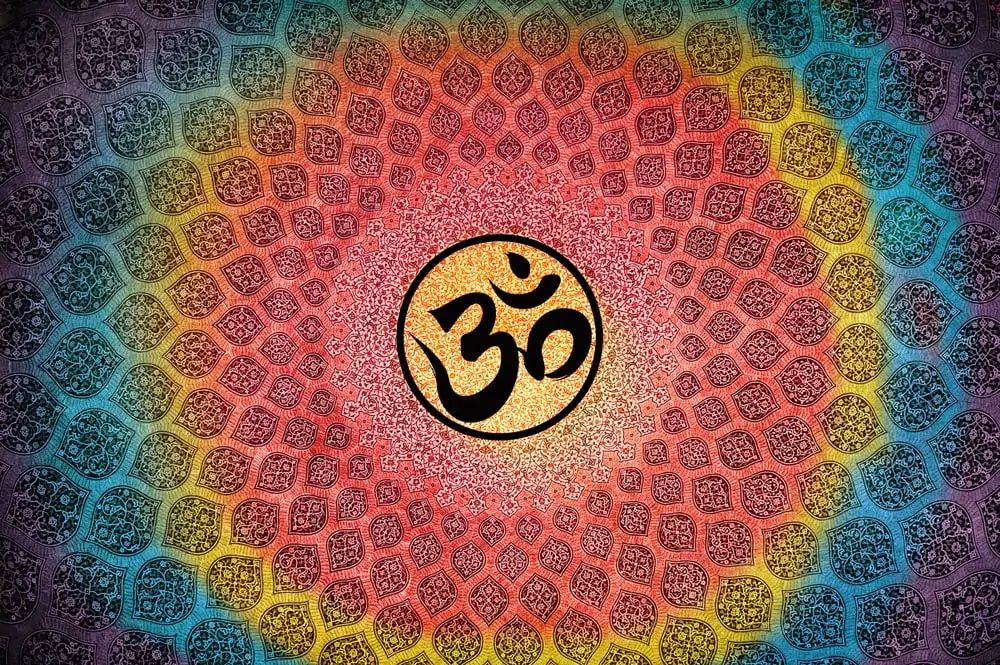
13. Yoga is a vital part of Hinduism
The original meaning of Yoga was “Union with God” but in recent years it has moved closer to Western society. But the term yoga is also quite loose as the original term actually refers to various Hindu practices.
There are various forms of yoga, although the most common one today is Hatha yoga.
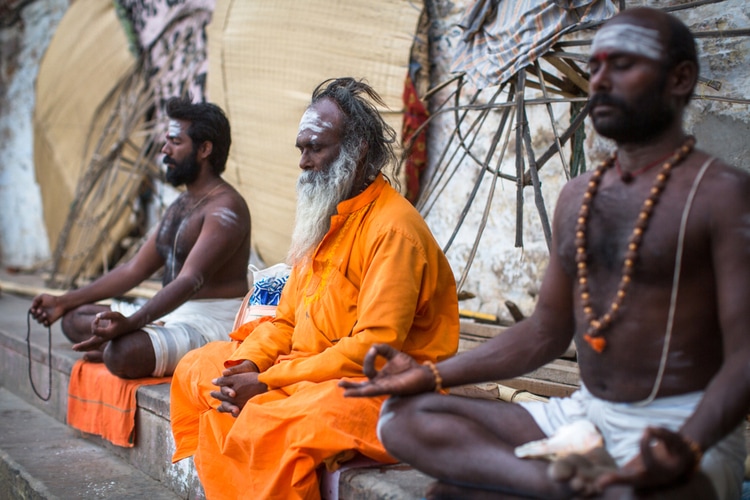
14. Anyone can attain salvation
There is no saying that people from other religions can’t attain salvation or enlightenment.
15. The Kumbh Mela is the largest spiritual gathering in the world
The Kumbh Mela festival has been awarded the status as a cultural heritage by UNESCO, and on 10 February in 2013, more than 30 million people participated in just one single day.

5 x Random Facts about Hinduism
- Million of Hindus worship cows
- There are three major sects in Hinduism: Shaiva, Shakti, and Vaishnava
- There are more than 1 billion Hindus in the world, but most of them are from India
- Ayurveda is a science of medicine that is part of the sacred Vedas
- Diwali, Gudhipadawa, Vijayadashami, Ganesh festival, Navratri are some of the important Hindu festivals
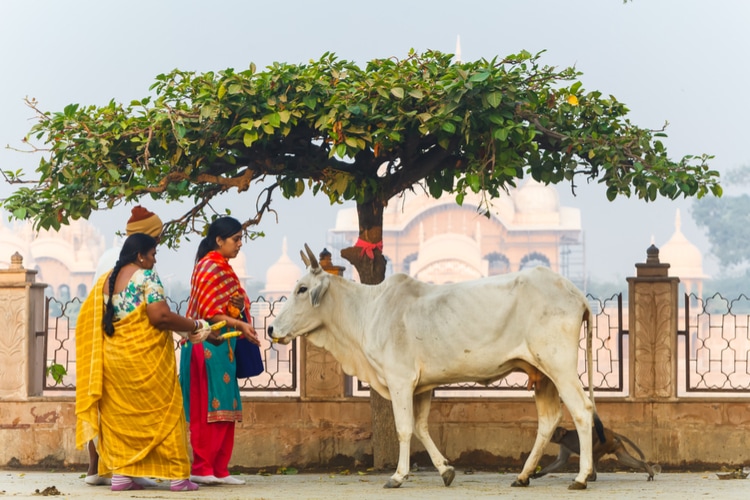
5 x Hinduism Facts for Kids
- It originated at least 4000 years ago, but its history can be traced back to 5000-10,000 B.C
- There is an elephant god known as Ganesha
- Lord Brahma, Lord Vishnu, and Lord Shiva are the main deities in Hinduism
- Brahman is the eternal origin, who is responsible for the creation of the universe
- Hindus believe in reincarnation, which means that the soul is eternal and is constantly reborn in one form or another
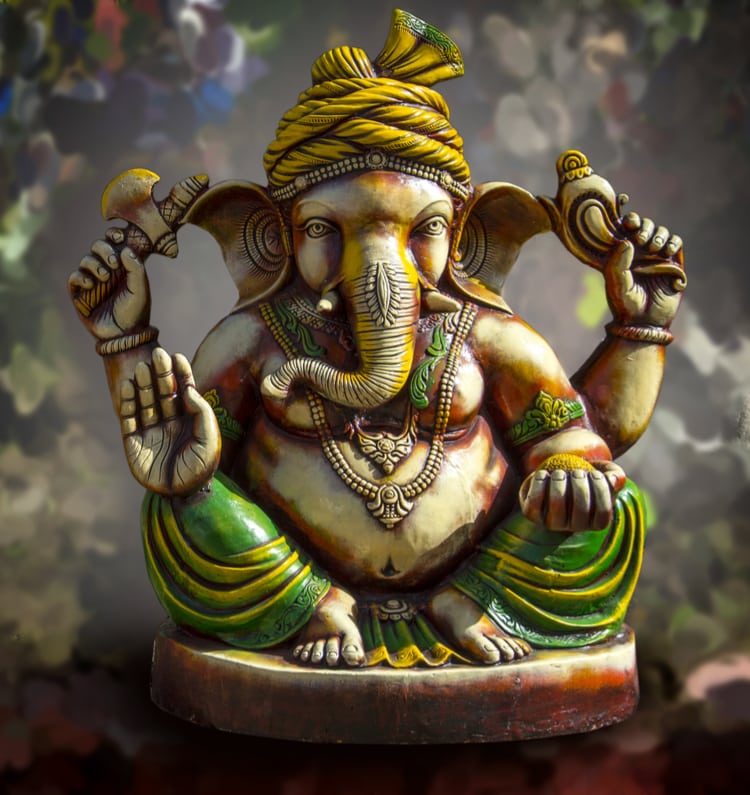
General Facts about Hinduism
Below is some general information about Hinduism that might be interesting to know.
- Total number of Hindus: 1.08 billion people
- Original name: Sanātana Dharma
- Place of Origin: India
- Sacred text: Vedas and Upanishads
- Original language: Sanskrit
Hindu Gods
| Brahma | Ganesha |
| Shiva | Vishnu |
| Krishna | Shakti |
| Yamuna | Hanuman |
| Ayyapan | Kartikeya |
Hinduism beliefs
Hindus believe in a universal soul or God called Brahman. It is thought to be eternal energy that is timeless and the cause of the creation of the universe and everything that comes with it.
The Brahman is neither a he or she and can take forms on Earth in many ways, which is why Hindus believe in various gods and goddesses.
Reincarnation
This is the concept of being reborn in a different physical form or body. The Vedas does not mention the doctrine of Karma and rebirth.
The Vedas only mention the belief in an afterlife, so reincarnation is something that has grown into the religion, and it was first mentioned in the early Upanishads.
However, in modern times, reincarnation plays a big role within Hinduism, and what physical form or body your soul will enter depends on your karma.

Karma
This is the sum of a person’s actions in this and previous states of existence. For every good deed that you do, the better the karma you will receive as long as the intention was pure.
And the opposite will happen if you do something wrongfully. Karma decides the fate for your soul during reincarnation.
Hinduism Symbols
The Aum symbol and Swastika are two ancient Hindu symbols.
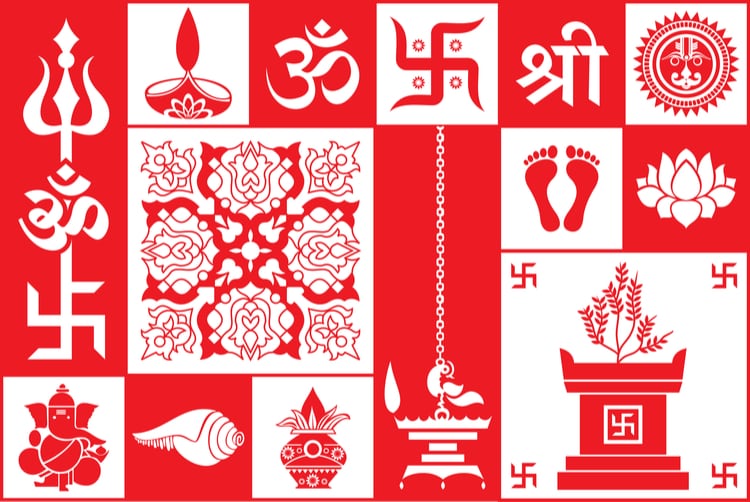
Hindu Festivals
- Diwali
- Holi
- Onam
- Maha Shivaratri
- Krishna Janmashtami
- Makar Sankranti
- Ganesh Chaturthi
- Rama Navami
- Ugadi
- Kumbh Mela
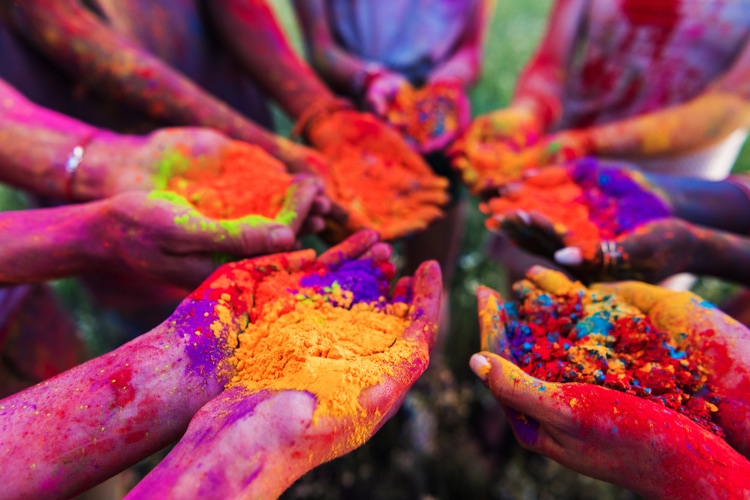
What is Hinduism?
Hinduism or Sanatana Dharma is the collective name for Indian traditions, religious- and philosophical beliefs. It’s the major belief system in India and has more than 1 billion followers. It is unique since it has no founder, but rather grew out of Vedic religions.
The followers of Hinduism are known as Hindus and it is known as the oldest religion in the world.
Founder of Hinduism
There is no single founder of Hinduism. It was created out of cultural and religious changes in India, and its history goes back to at least 5000-10,000 B.C.
Why it matters
No matter what you believe in yourself it’s important to educate yourself about world religions and belief systems. In order to accept others and stop judgemental actions, we need to understand each other.
Now you know the basics of Hinduism, and despite if you agree with it or not, at least now you don’t have to make assumptions, and you can go ahead and become inspired by it or the very least accept Hindus and their beliefs.
We only have 1 planet that we live on, and we need to be open towards other cultures. We need acceptance and respect to maintain peace and make Earth a prosperous place to live for every living being, no matter background.
Also, if you travel to India or any other country with many Hindus, it’s a good idea to learn a thing or two beforehand to show respect and appreciation of their culture.